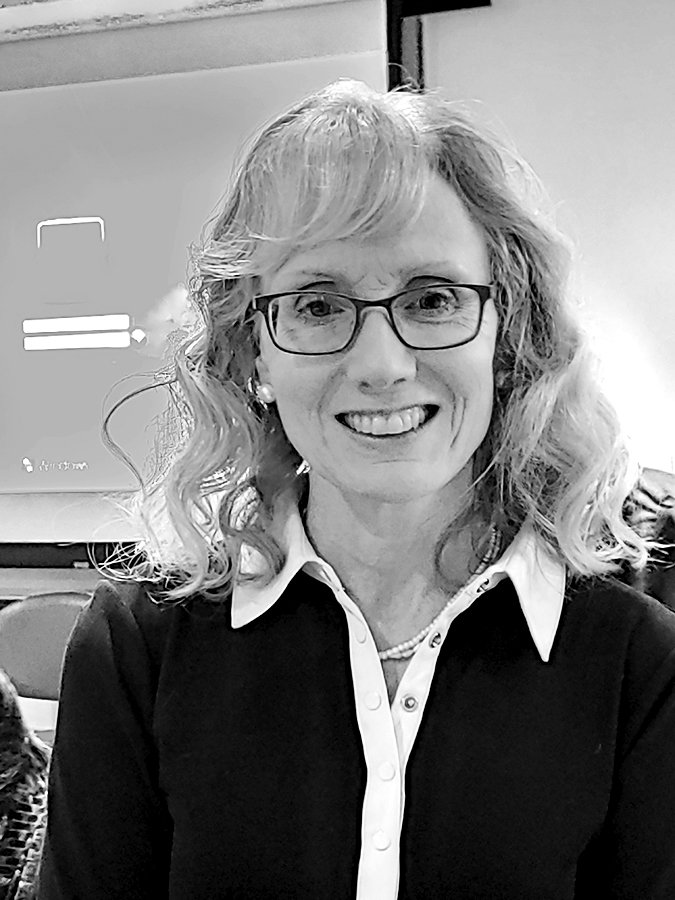Speaker details ways to cope with some of the challenges of aging
“The Challenges and Joys of Aging: How Older Adults Can Thrive in Difficult Times” was the topic of a talk given by Prof. Deborah Carr as part of The Miriam Hospital Women’s Association’s February meeting.
Carr, a sociologist and social gerontologist, is chairwoman of the Department of Sociology at Boston University. She is the author of several books, including “Worried Sick: How Stress Hurts Us and How to Bounce Back.” She has been featured in the New York Times, the Wall Street Journal and on ABC and NBC news.
Carr noted that stress is a common problem for older adults. She highlighted some common stressors for the elderly:
• Life events, such as the death of a spouse, job loss, falls, health issues
• Chronic strains, such as caregiving, financial worries, marital troubles
• Personal network events, such as a brother’s unemployment or a friend’s illness
• Daily, or “quotidian,” strains, such as traffic or being on hold on the telephone.
So what is stress? It is any environmental, social, biological or psychological demand that requires a person to adjust his or her usual patterns of behavior, Carr said. Stress increases the risk of depression, anxiety, early death, heart disease, diabetes, abdominal adiposity (belly fat), accidents, sleeping issues and many other problems and symptoms. Stress can also reduce our sense of competence and security, and lead to unhealthy reactions such as substance abuse and sleep problems.
But, fortunately, Carr said, each of us has distinct coping resources to help deal with stress. In general, she said, the most helpful strategies include active coping, use of support, positive thinking, planning and humor. The most unproductive strategies include denial, substance abuse, disengagement and self-blame. Our personality traits play a role in our reaction to stress.
The good news is that as we grow older, we develop a greater capacity to regulate our emotions. Older adults report less extreme levels of both positive and negative moods, and shorter-lived mood dips when a major stressor strikes. This is due to several factors:
• The experience, wisdom and equanimity that come from years of coping
• Adeptness at aligning expectations with reality
• A greater tendency to see the positive and minimize the negative, especially in social relationships
• Biological and cognitive changes, including a decrease in autonomic arousal.
Ageism is universal, but it can be worse for those who look old. This is frequently the case for disadvantaged older adults, who often suffer from an earlier onset of age-related health conditions and have less means to pay for gym memberships and enhancers like hair coloring and the like.
We may experience cognitive and/or behavioral changes as we age. These can be best coped with by marshalling social support, “paying it forward,” seeking professional help (especially if there are underlying mental-health issues), medications in limited circumstances, and engaging in productive and generative activity.
Public and private support exists for community engagement and integration, including the Senior Corps, Meals on Wheels, co-housing and villages programs, AmeriCorps, the AARP Experience Corps, Social Security, Medicare, family leave and caregiver benefits (Rhode Island is among the states that offer a paid family leave public insurance program).
Membership in The Miriam Hospital Women’s Association is open to anyone in the community. The group holds several informative programs each year, and helps raise money for The Miriam Hospital, in Providence. For more information, contact Vickie Scott at 401-793-2520 or Vickie.Scott@lifespan.org.
BARBARA BROWN is a member of The Miriam Hospital Women’s Association.








